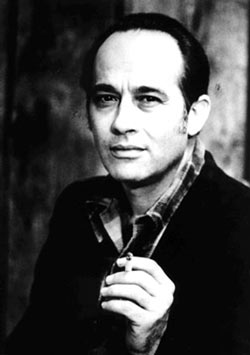
 |

Jim Wayne Miller, a native of the mountain country of North Carolina, was graduated from Berea College in Kentucky in 1958 and received his Ph.D. in German and American Literature from Vanderbilt University in 1965. While at Vanderbilt, as an NDEA Fellow, he studied under Fugitive poet Donald Davidson and Hawthorne Scholar Randall Stewart. He was a Professor of German language and literature at Western Kentucky University for 33 years, where he was a member of the faculty of the Department of Modern Languages and Intercultural Studies. He served as a consultant to the Appalachian Studies programs in Kentucky, Tennessee, and Ohio and was a visiting Professor in Appalachian Studies at the Berea College Appalachian Center.
Jim Wayne Miller worked in the Poet-in-the-Schools program in Virginia and directed poetry workshops for several Universities. His honors include the Alice Lloyd Memorial Prize for Appalachian Poetry in 1967, the 1980 Thomas Wolfe Literary Award, the Zoe Kincaid Brockman Memorial Award, the Appalachian Writers Association Book of the Year Award and the Appalachian Consortium Laurel Leaves Award. His books include Copperhead Cane (1964), Dialogue With A Dead Man (1974), The Mountains Have Come Closer (1980), Vein Of Words (1984), Nostalgia for 70 (1986), Brier: His Book (1988), and Newfound (1989).
Jim Wayne Miller, on his poetry:
" Growing up in North Carolina, I was often amused, along with other natives, at tourists who fished the trout streams. The pools, so perfectly clear, had a deceptive depth. Fishermen unacquainted with them were forever stepping into what they thought was knee-deep water and going in up to their waists or even their armpits, sometimes being floated right off their feet. I try to make poems like those pools, so simple and clear their depth is deceiving. I want the writing to be so transparent that the reader forgets he is reading and is aware only that he is having an experience. He is suddenly plunged deeper than he expected and comes up shivering."
" Good poetry will deal with ordinary things...and still manage to evoke a sense of wonder, of the miraculous."